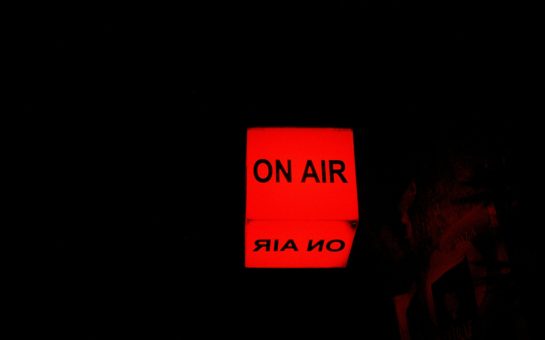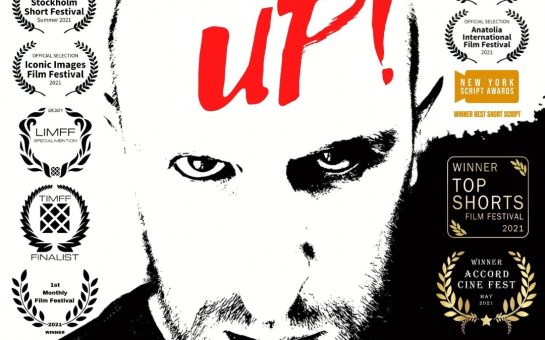Hate crime is a growing concern throughout London and the United Kingdom.
In October 2024, The Guardian reported record levels of religious and racial hatred in England and Wales.
A rise in homophobic offences has been reported on the London transport network.
April’s Supreme Court ruling on biological sex could cause further increase in transphobic hate crime, which has been on the rise in London up to last year.
In April 2024, Scotland introduced a controversial Hate Crime Act to tackle rising hatred. Despite being sabotaged by the far right and impacted by a recent Supreme Court ruling, the Act has benefited Scotland and shows that similar legislation may positively impact London and the UK.
Religious hate crime in London
Religious hate crime has been on the rise in the capital, with 17 of the 32 London boroughs (53%) recording a rise in Islamophobic hatred between 2021/22 and 2022/23.
Eight boroughs recorded a rise of over 20%.
Since the Gaza war, the Met Police recorded a 286% rise in antisemitic hate crime from September 2023 to August 2024, compared to the same period in the 12 months before, and a 67% increase in anti-Muslim hate crime.
London Mayor Sadiq Khan told the BBC last October: “We have seen an abhorrent and completely unacceptable rise in hate crime over the last year – particularly antisemitism and Islamophobia – which has profoundly impacted our Jewish and Muslim communities in London.”
Scotland’s hate crime and Public Order Act
Former Scottish First Minister Humza Yousaf has sighted the same religious hatred as Sadiq Khan, telling The Londoners: “It is a symptom of the times that we are seeing the rise of the far right driven by anti-migrant, anti-minority, and anti-Muslim hatred.
“We are seeing that spread right across Europe and the West, and the United Kingdom and indeed Scotland is not going to be immune from that.”
In April 2024, Yousaf’s SNP Government introduced the Hate Crime and Public Order (Scotland) Act 2021 to combat rising religious, and all other forms of hatred in Scotland.
Scotland’s Hate Crime Act consolidates existing hate crime legislation and expands on the categories of ‘stirring up hatred’ against groups with protected characteristics, including disability, age, religion, sexual orientation and gender identity.
There is a trend of underreporting hate crime due to a lack of confidence in statutory bodies within the UK.
A recent public consultation among Hammersmith & Fulham residents revealed that more than 70% of respondents, who had previously experienced hate crime, did not report it.
Scotland’s Act aimed to change this underreporting, and was advertised and promoted as legislation which could reassure unheard people, particularly the elderly and vulnerable, to report hatred against them.
University of Glasgow Professor James Chalmers told The Londoners: “Having a new law publicly attached to something may mean that people are much more likely to come forward because they’re aware there’s a route to report hate crimes.”
Hate Crime charges in Scotland have increased since the 2020 COVID-19 pandemic, as they have done throughout the UK.
Before the introduction of the Act, the majority of hate crimes were related to race, sexual orientation and disability.
Critics of the Act predicted a rise in transgender hate offences, despite transgender hate crime having remained at 1% for the past nine years in Scotland.
The Act was branded an attack on free speech by JK Rowling and Elon Musk, who criticised the inclusion of transgender identity as a ‘protected characteristic’.
Former Prime Minister Rishi Sunak agreed, stating “People should not be criticised for stating simple facts of biology.”
April 2024
More than 7,000 reports were made in the first week of the Act.
This was a surge in hate crime reporting that Deputy Chief Constable Alan Speirs described as: “Vexatious and politically motivated reports that flooded our system in the early weeks.”
Police Scotland received 3,000 reports in the first 48 hours alone. The majority from anonymous online reports.
Of the 7,152 reports, only 232 (3%) met the threshold to be recorded as a hate crime.
The Observer reported neo-Nazi and far-right networks were encouraging supporters to make vexatious complaints, pointing towards the influx in complaints in the first week.
The 74% drop in crimes reported between weeks one and two illustrates the disingenuous nature of the reporting in the first week.
In the second and third week, reports began to align with what met the threshold for a hate crime to be recorded.
A total of 5437 hate crimes (63% increase) were reported between 1 April and 1 October 2024 following the introduction of the Act.
Hate crimes towards disability, age and race comprised many of the cases in this six-month period.
The Supreme Court ruling
A year later, the Act has helped reporting of hate crime against elderly and disabled people in Scotland, as shown by the near 300 hate crimes reported by October 2024.
There has been no indication of free speech repression or criminalising opinions expressed on transgender identity, as many media outlets and celebrities predicted.
Yousaf added: “All of the outlandish claims that were made by those who opposed the bill, none of them have materialised.”
Despite the new legislation not recording any significant increase in transgender hate crime, April’s UK Supreme Court ruling on biological sex was seen as a win for the far right, leaving transgender people feeling vulnerable, with their lives possibly unliveable according to former Scotland First Minister Nicola Sturgeon.
The ruling had other implications for the Act. ‘Sex’ will now be added as a protected characteristic in the Scottish hate crime bill.
As the far right initially tried to undermine Scotland’s hate crime Act, there are concerns that the Supreme Court ruling could be used to attack transgender people and diminish the progress made by the Hate Crime and Public Order Act.
Just as the Gaza war was the spark for the growth of religious hatred in London and the UK, the Supreme Court ruling could have a similar effect for transgender hate crime.
The Supreme Court has reaffirmed that the Equality Act will protect transgender people against discrimination.
Regardless, thousands of trans rights protesters gathered in central London in protest of the ruling, while Political parties have been banned from taking part in a Glasgow pride event due to a lack of action or comment on the Supreme Court’s decision.
Legacy of Scotland’s Act
Although Scotland’s Hate Crime and Public Order Act generated great controversy, it has shown to have a positive impact. Stronger legislative action is needed to tackle hate crime throughout the UK.
“I think it has benefited Scotland. From a law perspective, it has all the legislation in one place. It’s more accessible and clearer than what it was before,” concluded Professor Chalmers.
On introducing the Act, Yousaf said: “Passing the Hate Crime and Public Order act is something I am incredibly proud of.
“I hope other countries will look at the legislation we passed here in Scotland and say it is important, given the rising tide of hatred we see across the world, particularly in amongst western countries, we should take action to ensure that we can combat it legally before people continue to be hurt by hatred.”
Indeed, with rising hate crime reports in London and the recent Supreme Court Ruling, it may be beneficial for England to provide a similar route to reporting hate crime.
With defined categories like Scotland’s act, the vulnerable and unheard may have a voice and the rise in hate crime could be tackled appropriately.





